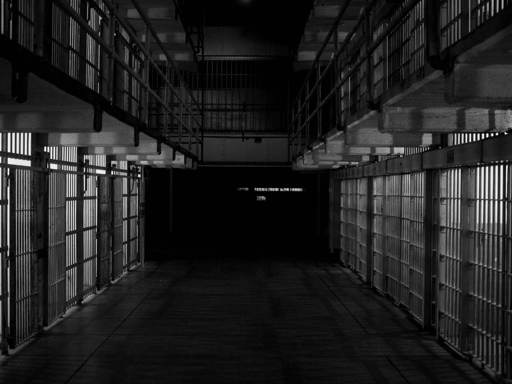A shocking new investigation has uncovered the existence of a secret Israeli underground prison known as ‘Rakefet’ (Zahrat al-Siklamin). Here, almost a hundred Palestinians from the Gaza Strip are being held in conditions described as harsh and inhumane. They live in complete isolation from daylight, deprived of adequate food, and any contact with their families or the outside world.
Israel secret underground prison
The Guardian reported that among those detained are a Palestinian nurse who was arrested at his workplace while wearing his medical uniform, and an 18-year-old man who worked selling food, both of whom have been detained for months without charge or trial.
Lawyers from the Public Committee Against Torture in Israel (PCATI), who represent the two men, said they were transferred to the lower complex of Rakefet Prison in January and spoke of repeated beatings and violence consistent with patterns of torture documented in other Israeli detention centres. The Guardian reported that:
Rakefet prison was opened in the early 1980s to house a handful of the most dangerous organised crime figures in Israel but closed a few years later on the grounds that it was inhumane. The far-right security minister, Itamar Ben-Gvir, ordered it back into service after the 7 October attacks in 2023.
Underground detention conditions: constant darkness, torture, and stifling air
Official data obtained by PCATI shows that the prison, which was designed to hold only 15 people in solitary confinement, currently holds around 100 detainees.
The Guardian found that detainees live in cells with no windows or ventilation, with three to four people in each cell, and often feel suffocated and short of breath. Mattresses are removed at 4 a.m. and returned late at night, forcing detainees to sit all day on cold metal frames. Prisoners are only allowed into a cramped underground exercise yard with no natural light for five minutes every two days.
Detainees reported being beaten, trampled on, and attacked by dogs with iron muzzles. Many reported the denial of medical care, and a severe lack of food – barely enough to survive.
Lawyer Janan Abdu of PCATI explained that:
After arrest, the court “approves” the detention in a perfunctory manner: the detainee appears only as a face on a soldier’s phone screen, and the judge tells him, “You are detained until the end of the war,” without inquiring about his circumstances or conditions of detention. Such a process reflects a blatant abdication of the judiciary’s basic responsibility to oversee prisons and the conditions of those held in them—oversight that is essential, especially when all other monitoring is absent, as is the case in these prisons.
‘they are talking about civilians, not fighters,’ noting that one of them was a young man who worked as a food vendor and was arrested at a roadblock.
Lawyer Saja Mashirqi Bransi, who visited the prison with Abdu, said that the detained nurse had not seen sunlight since 21 January and that he asked her at the beginning of the meeting, “Where am I? Why am I here?| because he had not been told the name of the prison.
‘Deliberate humiliation’ under the eyes of the guards
The two lawyers described their trip to the prison as ‘a descent into hell.’
Masked and heavily armed guards led them down a dirty staircase littered with dead insects to the visiting rooms, where even the privacy of the lawyers was violated by surveillance cameras inside the meeting rooms.
‘If these are the conditions in the lawyers’ room, what must the conditions in the cells be like?’ said Abdo. ‘We found the answer when we saw the detainees, handcuffed, heads bowed, forced to bend over.’
Tal Steiner, executive director of PCATI, confirmed that the conditions of detention in Rakefet are oppressive and harsh to the point of being life-threatening, adding that the absence of daylight makes existence extremely difficult:
It’s very hard to remain intact when you are held in such oppressive and difficult conditions.
Steiner said these practices constitute “a flagrant violation of international humanitarian law,” noting that “detention in darkness underground is one of the most severe forms of psychological and physical torture that can be inflicted on a human being.”
Official silence and mutual accusations
The Israel Prison Service (IPS) refused to respond to the Guardian’s findings, issuing only a statement saying that it:
operates in accordance with the law and under official supervision.
According to official data, around 1,000 Palestinian detainees remain in Israeli custody in similar conditions, despite the release of 250 convicted prisoners and 1,700 detainees from Gaza during the truce agreement in mid-October.
Confidential Israeli documents confirm that the majority of detainees are civilians, raising serious legal and humanitarian questions about the legality of these arbitrary arrests.
The investigation concluded with a striking testimony from lawyer Saja Misherqi Baransi, who said that when she spoke to one of the detainees, they pleaded with her:
Please come and see me again.
Featured image via Unsplash/Emiliano Bar
By Alaa Shamali
From Canary via this RSS feed


